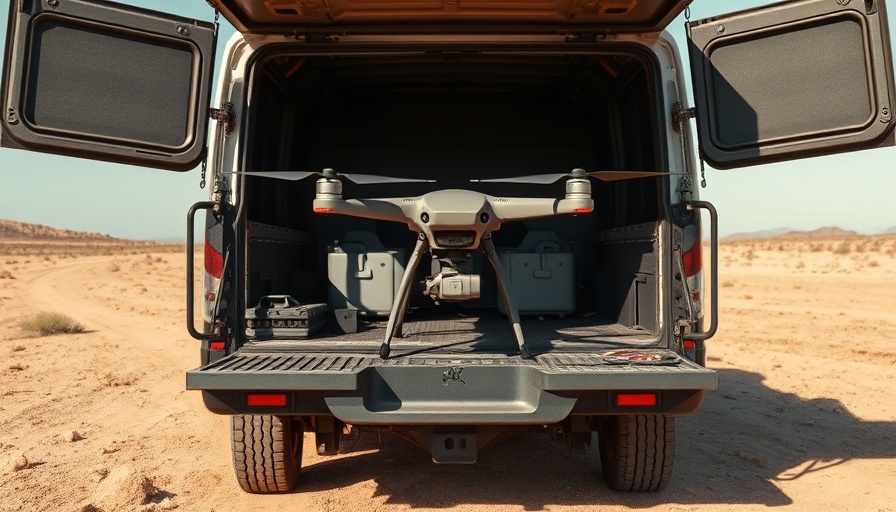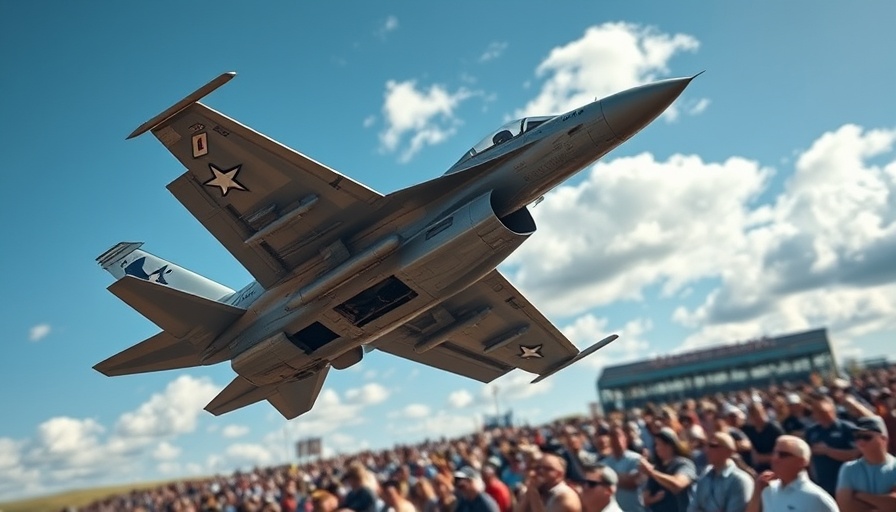
Ukraine Leads the Charge in Autonomous Warfare Innovations
In a bold move to adapt to modern warfare dynamics, Ukrainian startup Strategy Force Solutions has showcased its revolutionary autonomous drone carrier system, marking a significant milestone in combat technology. The GOGOL-M mothership recently conducted its inaugural long-range strike missions against Russian targets, demonstrating how drone technology can redefine defense strategies.
Cost-Effective Striking Power
The CTO of Strategy Force Solutions shared that this innovative system allows for a strikingly economical attack with missions costing around $10,000. This figure pales in comparison to traditional missile systems, which range from $3-$5 million. By utilizing a mothership to deploy multiple FPV-style (First-Person View) drones, these operations can effectively target threats like parked aircraft, crucial air defense sites, and vulnerable infrastructure from distances of up to 300 kilometers.
The Role of AI in Military Strategy
With the integration of AI technologies, the GOGOL-M system aims to enhance precision and operational efficiency in combat scenarios. The AI-enabled capabilities allow for automated targeting that increases the likelihood of successful strikes while reducing human risk. This innovation is not solitary; it reflects a broader global trend where countries, including the United States and China, are investing in drone-derived military technologies to maintain an edge in warfare.
Historical Context: Drones in Combat
Drones have transformed modern conflicts since their introduction, but the Ukrainian approach represents a new chapter in their application. Historically, drones have offered reconnaissance and targeted strikes. However, Ukraine’s shift towards autonomous decision-making platforms emphasizes the evolving nature of warfare. This aligns with the Pentagon's ongoing efforts to expedite the development of similar autonomous long-range systems, indicating a significant pivot towards technology-centric military solutions.
Future Implications: The Changing Landscape of Defense
As military tactics adapt to technological advancements, the implications for global defense strategies become increasingly profound. The effectiveness and cost-efficiency of systems like the GOGOL-M may prompt other nations to explore similar drone-based solutions. Following Ukraine's lead could redefine warfare ethics and necessitate discussions on AI usage in combat, highlighting a need for robust frameworks to manage these emerging technologies responsibly.
The rise of autonomous drones in warfare highlights not only advancements in technology but also their broader implications for international security and defense policies. As the landscape continues to evolve, stakeholders must navigate the balance between innovation and ethical considerations that accompany such powerful tools.
 Add Row
Add Row  Add
Add 




Write A Comment